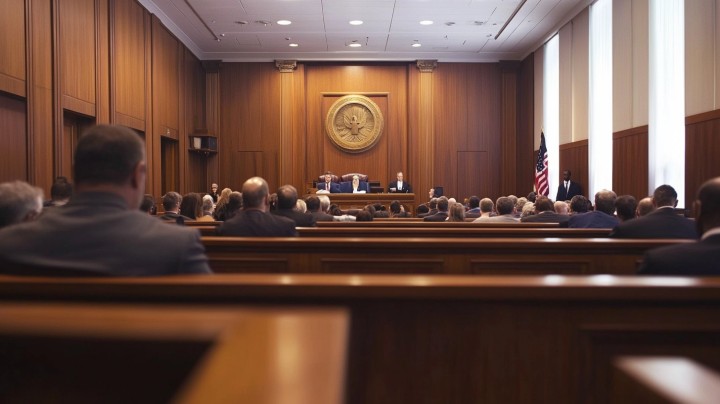Introduction to Minors in Court
Definition of a Minor
A minor is typically defined as an individual under the age of 18. The legal definition of a minor can vary depending on the jurisdiction and the specific legal context.
Importance of Understanding Court Access for Minors
Understanding whether and when a minor can attend a court hearing is crucial for legal guardians, parents, and the minors themselves. It ensures that minors are appropriately involved in legal processes that may affect them directly or indirectly.
Legal Considerations for Minors Attending Court
Rights of Minors in Court
Minors have specific rights when attending court, including the right to have a parent or guardian present and the right to legal representation. These rights help protect the minor’s interests and ensure a fair legal process.
Restrictions and Limitations
There are also restrictions and limitations on minors attending court. These can include age restrictions, the nature of the case, and the need for parental or guardian consent. Some hearings may be closed to minors due to the sensitive nature of the proceedings.
Types of Court Cases Involving Minors
Juvenile Court Hearings
Juvenile court hearings specifically deal with minors who are accused of crimes. These hearings are typically closed to the public to protect the privacy of the minor. Minors are required to attend these hearings as defendants or respondents.
Family Court Cases
Family court cases often involve minors in matters such as custody disputes, adoption, and child welfare. Minors may be required to attend these hearings if their testimony or presence is deemed necessary.
Criminal Cases
In criminal cases, minors can attend as defendants, witnesses, or observers. However, their attendance may be subject to certain restrictions, especially if the case involves sensitive or graphic content.
Civil Cases
Minors can be involved in civil cases, either as plaintiffs, defendants, or witnesses. Their involvement and attendance will depend on the relevance of their testimony and the nature of the case.
When Can a Minor Attend a Court Hearing?
As a Defendant or Respondent
Minors can attend court hearings as defendants or respondents in juvenile or criminal cases. Their presence is required to ensure they understand the charges against them and can participate in their defense.
As a Witness
Minors may be called to testify as witnesses in various types of cases. Special accommodations are often made to ensure their comfort and safety while providing testimony.
As an Observer
Minors can attend court hearings as observers, usually with parental or guardian permission. This is common in cases where the minor has a vested interest in the proceedings, such as family court cases.
Parental and Legal Guardian Involvement
Role of Parents or Guardians
Parents or guardians play a crucial role in supporting minors through the court process. They provide emotional support, ensure the minor’s rights are protected, and help them understand the proceedings.
Legal Representation for Minors
Minors are entitled to legal representation in many cases, particularly in juvenile court. An attorney can help safeguard the minor’s rights and provide guidance throughout the legal process.
Special Considerations for Minors in Court
Psychological and Emotional Impact
Attending court can be stressful for minors. Courts often make accommodations to minimize the psychological and emotional impact, such as providing a separate waiting area or allowing a support person to be present.
Courtroom Accommodations
Courts may offer special accommodations for minors, such as allowing testimony via video link, providing breaks during testimony, or using age-appropriate language to explain legal concepts.
FAQs
Can a minor attend a public court hearing?
Yes, a minor can attend a public court hearing, but it often requires parental or guardian consent, and the nature of the case may impose additional restrictions.
Are there age restrictions for minors in court?
Age restrictions can vary by jurisdiction and the type of case. Generally, minors under a certain age may require additional consent or may not be allowed to attend certain types of hearings.
What should a minor expect in court?
A minor should expect a formal setting where legal matters are discussed. They will likely need to follow specific protocols and may have to provide testimony if called as a witness.
How can a minor prepare for a court appearance?
A minor can prepare for a court appearance by discussing the process with a parent, guardian, or attorney, understanding what to expect, and knowing their rights and responsibilities.
What rights do minors have in court?
Minors have the right to legal representation, the right to have a parent or guardian present, and the right to be treated with respect and consideration for their age and maturity.
Can a minor’s court record be sealed?
In many jurisdictions, a minor’s court record can be sealed or expunged, particularly in juvenile cases, to protect their future opportunities and privacy.
Conclusion
Minors can attend court hearings under various circumstances, whether as defendants, witnesses, or observers. Understanding the legal considerations, rights, and potential restrictions is essential for navigating the court system. Parental involvement and legal representation play critical roles in supporting minors through these processes, ensuring their rights are protected and their well-being is prioritized.






